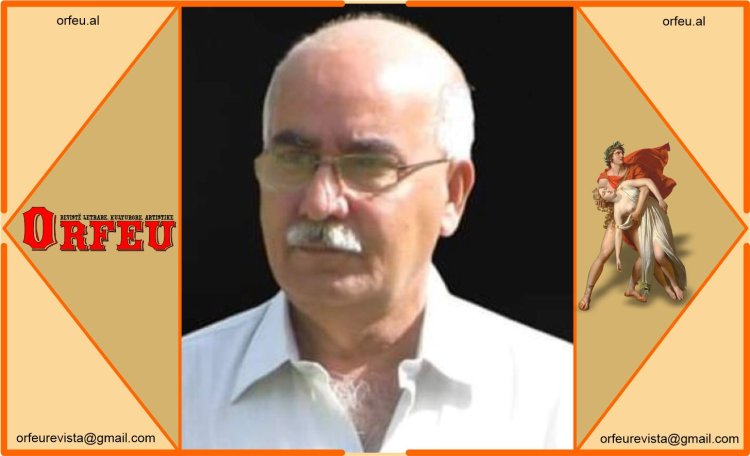ABOUT NASIR AIJAZ - PAKISTAN
Journalist, Author, Researcher and Poet
Nasir Aijaz, based in Karachi, the capital of Sindh province of Pakistan, is basically a journalist and researcher having spent over 48 years in the field of journalism. He won Gold Medal and another award for best reporting in 1988 and 1989. He has worked in key positions of editor for newspapers and news agencies. He also worked as a TV Anchor (For Pakistan Television) for over a decade and conducted some 400 programs from 1982 to 1992 besides appeared as analyst in several programs on private TV channels. He also did dozens of programs on Radio Pakistan and some other private Radio channels. He is author of ten books on history, language, literature, travelogue and biography. One of his books ‘Hur – The Freedom Fighter’, a research work on war against the British colonial forces, also won a prize. Some half a dozen other books are unpublished. Further, he translated a poetry book of Egyptian poet Ashraf Aboul Yazid, into Sindhi language, which was published in Egypt. Very recently, he translated a novel ‘Maharaja Dahir’ from English to Sindhi language, which originally was authored in Bengali by Debasree Chakraborti, a renowned novelist of Kolkata. Besides, he has written around 500 articles in English, Urdu and Sindhi, the native language of Sindh. He is editor of Sindh Courier, an online magazine and represents The AsiaN, an online news service of South Korea with regular contribution for eleven years. His articles have also been translated in Arabic and Korean languages. Some of his English articles were published in Singapore, India and Nigeria. He started writing poetry in his native language Sindhi, and English. Some of his poems have been translated in Odiya, Albanian, Italian, Arabic and Greek languages. Arabic translation has been published in Egypt, Iraq, and Abu Dhabi. His English poems have been published in Albania, Bangladesh, Kosovo, USA, UK, Tajikistan, Greece, Italy and some other countries. Recently, the Odiya translation of his poetry has been published in a literary magazine ‘Mahuri’ of Bhubaneswar, Odisha, India. Nasir Aijaz is one of the founding members of Korea-based Asia Journalists Association AJA. He has visited some ten Asian countries and attended international seminars. Email: [email protected]
WEAPONS DON'T MAKE THE WAR
Neither the weapons make the war
Nor the bombs fall on earth from the sky
Like the rainfall from the clouds afar.
Guns, bombs, and missiles do not sprout from the grounds
Nor they grow like vegetables at the farms, and fruits in the orchards
The humans have been dreaming up of making of such destructive devices.
Humans manufacture the Gatling Guns at foundries to rattle
Arms dumped at armories do not walk to the battlefield on their own
Only the humans bring the truckloads of munitions for the battle.
Armorers make the munitions to gain wealth, thrive, yielding the huge profits
Knowing that the weapons are for destruction of all the structures, and humanity
Indifferent to the scale of devastation, mass killings of innocent men, women and kids.
Humanity bleeds as the humans, greedy of wealth and power, commit inhumane acts
Bombs, missiles continue to rain and thunder, guns rattle
Death haunts the innocent humans, blood spills on the roads and streets.
POET ’S NOTE
This poem powerfully conveys the message that war is driven by human actions and intentions, rather than the weapons themselves. It emphasizes the role of greed and the manufacturing of arms in the perpetuation of violence and conflict. The imagery of weapons being produced in foundries and delivered to battlefields starkly illustrates the deliberate nature of warfare, contrasting the innocent lives that are affected by these decisions.
The refrain that "weapons don't make the war" serves to remind readers that it is ultimately human choices - shaped by desires for power and profit- that lead to destruction. The vivid descriptions of the consequences of war, including the suffering of innocent people, evoke a strong emotional response, urging reflection on the true cost of conflict.
Overall, the poem is a poignant critique of the arms industry and the moral implications of warfare, calling for awareness and compassion in the face of human suffering.
(Karachi, Sindh, Pakistan - September 24, 2024)
Prepared Angela Kosta Executive Director of MIRIADE Magazine, Academic, journalist, writer, poet, essayist, literary critic, editor, translator, promoter



